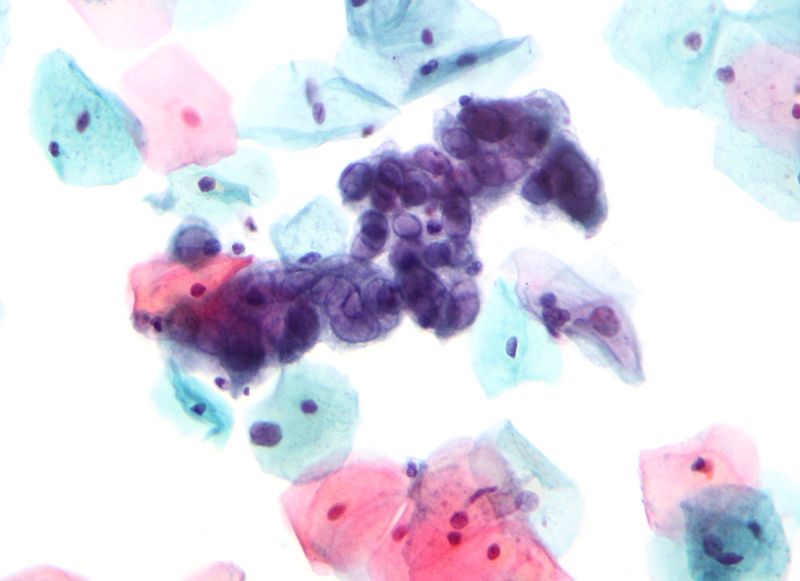 An experimental treatment using a genetically modified strain of the herpes simplex 1 virus has been shown to be effective in killing skin cancer cells and halting tumor growth, according to new research. The oncolytic virus immunotherapy, called T-VEC, was used to treat patients with melanoma in a Phase 3 clinical trial.
An experimental treatment using a genetically modified strain of the herpes simplex 1 virus has been shown to be effective in killing skin cancer cells and halting tumor growth, according to new research. The oncolytic virus immunotherapy, called T-VEC, was used to treat patients with melanoma in a Phase 3 clinical trial.
The research, published Tuesday in the Journal of Clinical Oncology, is the first to show this immunotherapy approach — in which a virus narrowly targets cancer cells and activates the immune system to fight cancer — significantly improved odds in the treatment of skin cancer tumors, especially inoperable ones.
The clinical trial was conducted across 64 research centers around the world and led by the Institute of Cancer Research (ICR) in London.
In a study of 436 patients with inoperable malignant melanoma, more than 16.3% of patients given talimogene laherparepvec — T-VEC, manufactured by Amgen — showed a lasting response for six months, compared with 2.1% of those in the control group given normal treatment. Some study participants had a response that went beyond three years.
“We may normally think of viruses as the enemies of mankind, but it’s their very ability to specifically infect and kill human cells that make them such promising cancer treatments, said Paul Workman, chief executive of the ICR, in a statement.
Patients with stage III and early stage IV melanoma injected with T-VEC therapy (163 people in total) lived an average of 41 months, compared with an average survival of 21.5 months in the 66 earlier-stage patients who received the control immunotherapy.
Scientists designed T-VEC by removing two key genes, which keep it from replicating within healthy cells. Instead, the treatment detects and attacks cancer cells. What’s more, T-VEC is genetically engineered to produce a molecule called granulocyte-macrophage colony stimulating factor (GM-CSF) — which activates the immune system to destroy tumors.
Cancer scientists are predicting this could be the first wave of indications for these cancer-fighting agents in the coming years.
“There is increasing excitement over the use of viral treatments, like T-VEC, because they can launch a two-pronged attack on tumors — both killing cancer cells directly and marshalling the immune system against them,” said Kevin Harrington, U.K. trial leader and professor of biological cancer therapies at the ICR, said in a statement. Harrington has been working on this particular virus for about a decade.
“And because viral treatment can target cancer cells specifically,” Harrington added, “it tends to have fewer side-effects than traditional chemotherapy or some of the other new immunotherapies.”
Rates of skin cancer have increased for the past 30 years, with more than 73,000 new cases of melanoma diagnosed this year and nearly 10,000 deaths, according to the American Cancer Society.
Responses to T-VEC were strongest in patients with less advanced cancers and in those who had not received any prior treatment, Harrington said. Because of this, T-VEC has potential as a first-line treatment for more advanced melanomas, according to the researchers.
Trials are also underway to determine how T-VEC might work with other cancers. “Now that oncolytic viruses have demonstrated an acceptable risk/benefit profile in melanoma, this treatment may be tested against other types of cancer where options are more limited,” said Howard L. Kaufman, M.D., associate director for clinical science and chief surgical officer at Rutgers Cancer Institute of New Jersey, who also collaborated on the research.
The drug, produced by Amgen, has been submitted to the U.S. Food and Drug Administration and the European Medicines Agency for approval.
Professor Kevin Harrington, U.K. trial leader, discusses the research in this video.
Source: The Institute of Cancer Research
Filed Under: Drug Discovery




